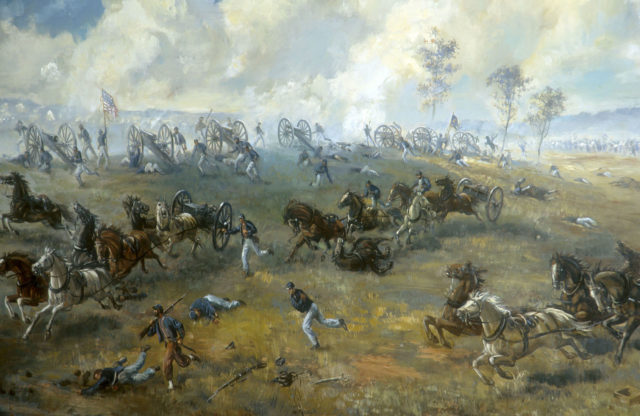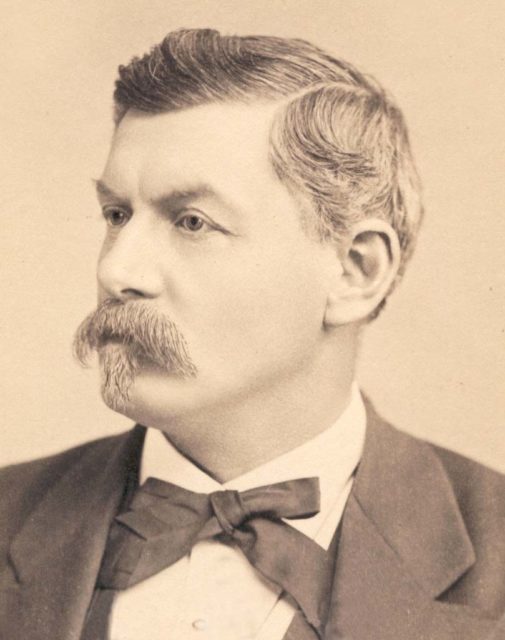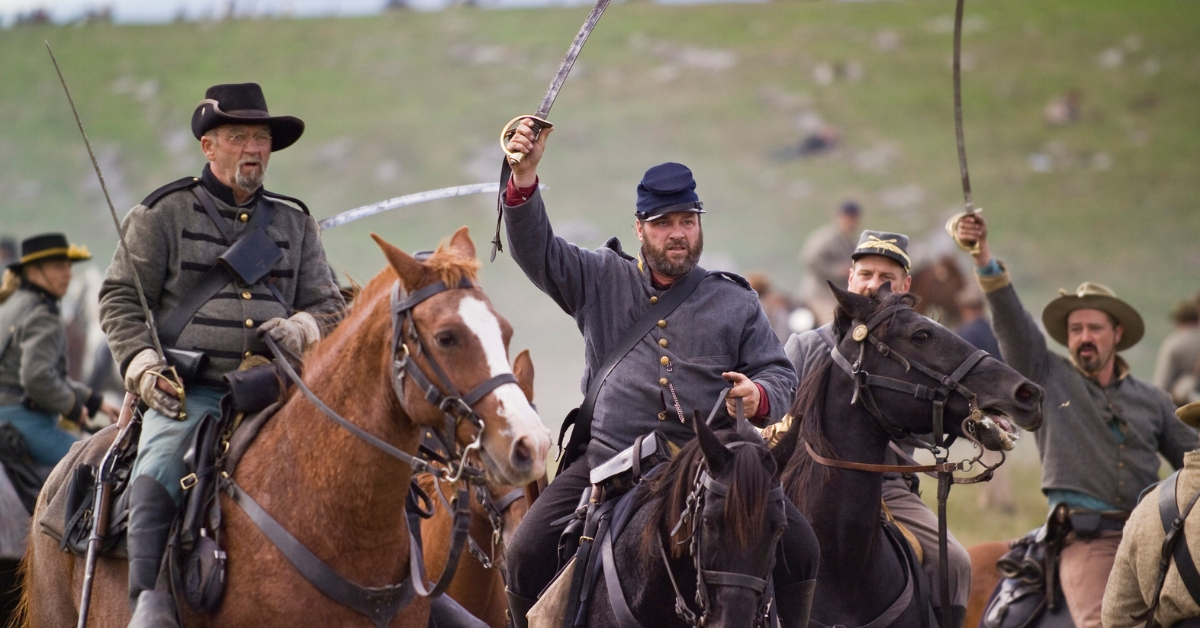Early in the American Civil War, the Confederacy almost won. It was not the complete victory the Union eventually achieved. Rather than conquering their opponents, the Confederates hoped to force them to the negotiating table, where the division of the states could be accomplished. In those terms, it could be argued the Confederates were close to their goals.
How did they achieve such a remarkable success?
Successes in the East
The foundation of Confederate success was the war in the east. There, the arena was more limited than in the west. Urban centers and communication networks were more densely packed. Even the political and administrative centers of the two nations sat close together.
It was where the greatest pressure could be applied to the Union. Bearing down upon Washington DC, Confederate forces threatened a political triumph by disrupting the apparatus of government. It was also a powerful symbolic moment that could have shattered their opponents morale.
Success in the east allowed the Confederates to achieve maximum pressure with their limited resources.
The Shenandoah
The terrain of the eastern theater favored the Confederates.
The critical factor was the Shenandoah Valley west of the Blue Ridge Mountains. It ran from the southwest to the northeast, creating a convenient route to funnel troops directly toward the Union’s political and industrial heartland. Raids and invasions could easily advance from the south toward the cities of the northeast.
That same valley created a hindrance for the Union. It directed their advancing troops away from Richmond and the heartland of Virginia. It created a barrier to be overcome rather than a route to be used.
Military Schools
With massive armies suddenly mobilizing, finding the men to lead them was vital to success. Both sides snapped up every available West Point graduate to command their troops. They included people like Grant who had abandoned the army or whose careers had collapsed.
The Confederacy, especially Virginia, had an incredibly strong military tradition. After West Point, the next best military schools in America were the Virginia Military Institute and the Citadel in Charleston, South Carolina. Those resources and the professional culture surrounding them ensured a supply of excellent officers for the fighting in the east.
Two men stand out as the epitome of that.

Lee
Robert E. Lee has achieved legendary status in America. One of the most gifted commanders in American history, he combined a strong grasp of his enemies’ weaknesses with a boldness that let him take risks when they were needed. In his campaigns through Virginia and beyond, he repeatedly outmaneuvered Union commanders and defeated them in battle. It was his leadership that brought Confederate armies within a hair’s breadth of Washington, only to be defeated in a close-fought and bloody battle at Gettysburg.
Jackson
Lee was assisted by his gifted right-hand man, Thomas “Stonewall” Jackson. An eccentric whose religious fervor and hypochondria at times bordered on madness, he was also one of the war’s greatest generals.
Jackson was a mass of contradictions. A harsh disciplinarian who won men around through concern for their welfare. A man paranoid about his health but who readily endangered his life through frontline combat.
A brilliant master of maneuver, he repeatedly outflanked and surprised his enemies, defeating four Union armies in the Valley Campaign alone. His combination of courage, trickery, fire control, and bloody-minded determination brought many victories.
The loss of Jackson to an unlucky bullet and the infection that followed significantly weakened the Confederacy.
McClellan
Lee and Jackson were aided in their success by the character of the man who opposed them.
Union General George B. McClellan was not without gifts as a commander. He was an efficient drillmaster and administrator who turned the Army of the Potomac into a well-oiled fighting machine during the first sixteen months of the war.

McClellan was, to use the jargon of modern business, risk averse. He was cautious. He was indecisive. He was unwilling to take any chances, as much because of the stakes at play as despite them. Against him, the bold and decisive Lee and Jackson faced occasional setbacks but triumphed in the long term.
Even after McClellan’s removal, he cast a shadow over the army. An officer corps shaped by his training and leadership were bound to be cautious. It took a long time for the Union armies in the east to find a boldness matching their opponents.
Manassas
If geography and psychology were influential in shaping the war, so too was history. The critical moment was the first great battle of the war.
Known as Manassas in the South and Bull Run in the North, it was a Confederate victory. It was a huge shock to people in the Union. Such was their confidence in victory that civilians went to watch the show, becoming tangled up in the retreat as the army broke.
That first battle created a belief in Confederate military superiority among many men on both sides. It bolstered Confederate confidence, helping them to their early victories. It also damaged the confidence of some Union commanders, fostering the fear of men like McClellan.
Did They Ever Stand a Chance?
With all those factors on their side, could the Confederacy have won?
It is a question that will be debated for as long as the war is remembered. The Union had greater resources and some gifted commanders, initially busy in the west. If Lee had succeeded at Gettysburg, maybe a knock-out blow could have resulted in those factors coming to bear.
It certainly looked at the time as though the Confederates could win.
Sources:
John Keegan (1987), The Mask of Command
James M. McPherson (1988), Battle Cry of Freedom: The American Civil War
James M. McPherson (1996), Drawn With the Sword: Reflections on the American Civil War
